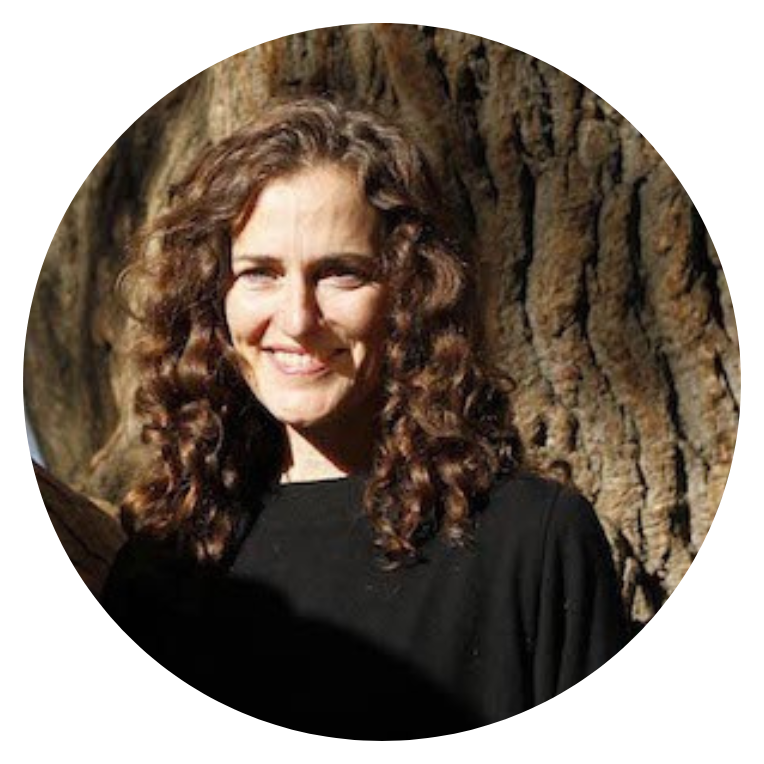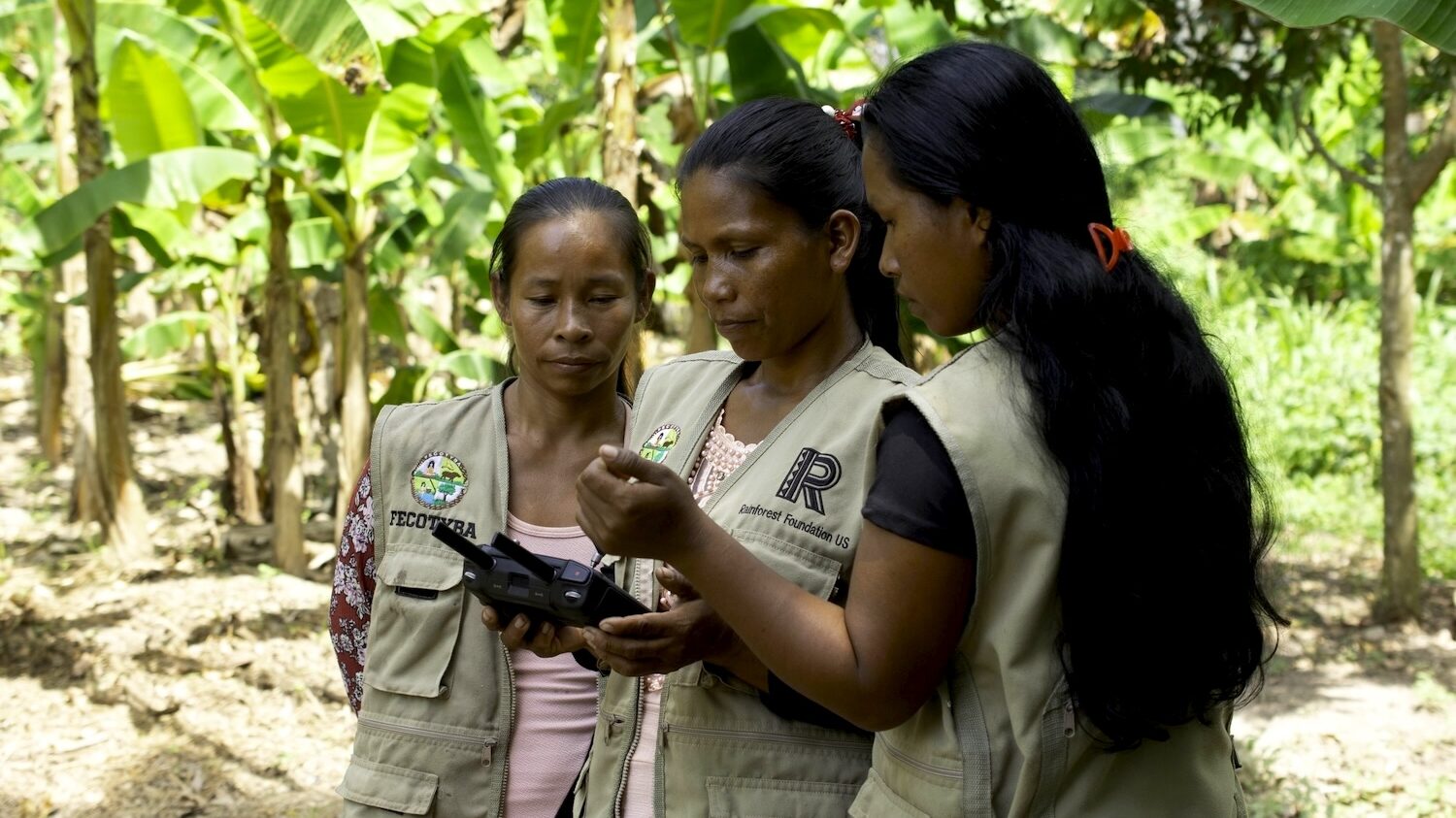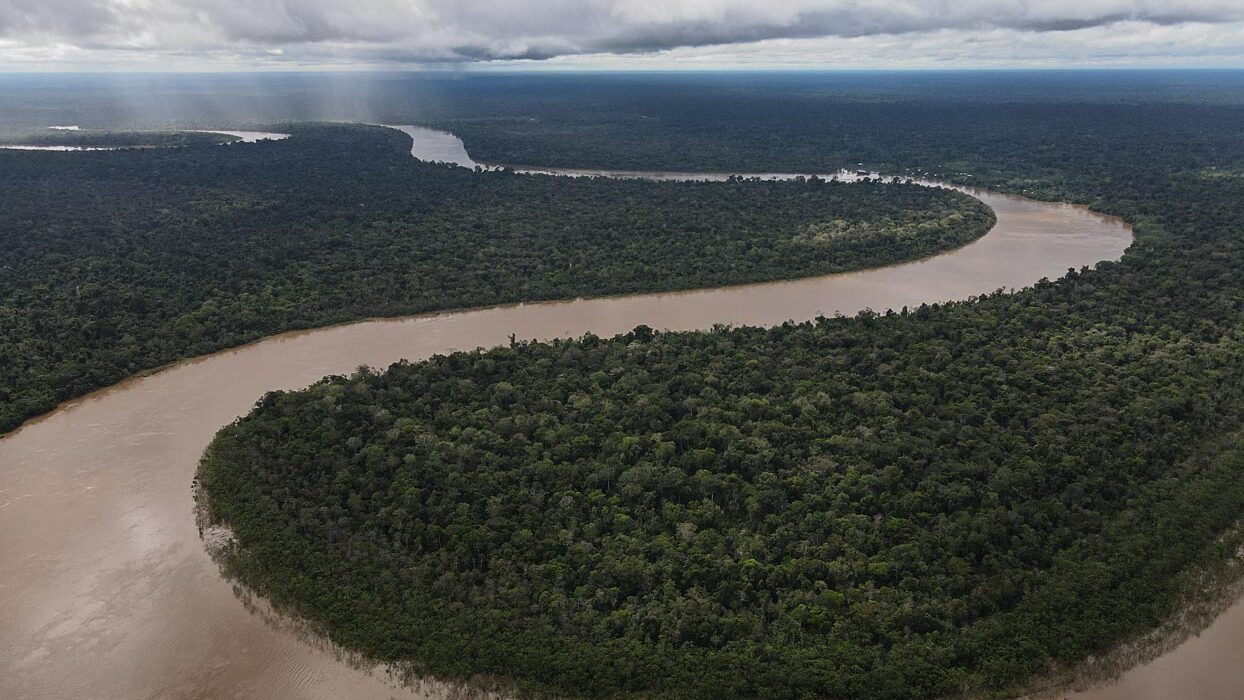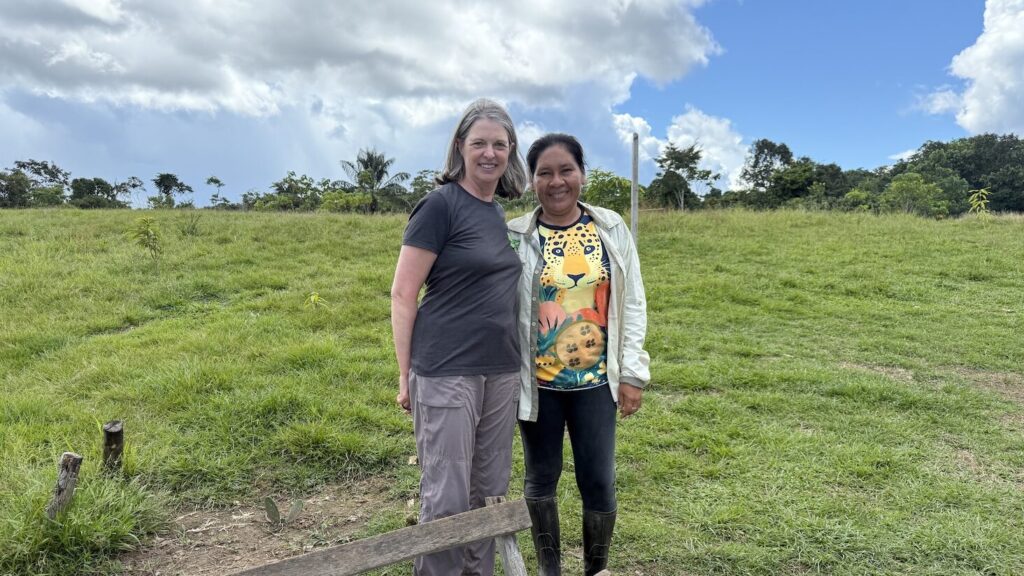A Message From Our Executive Director
Dear Friends and Supporters,
Across the Amazon, Indigenous communities are leading powerful efforts to protect their lands, cultures, and the climate we all share. From the rising leadership of Indigenous women forest monitors in Peru to cross-border alliances defending some of the most biodiverse territories on Earth, these movements are shaping a more just and sustainable future.
In this latest issue of our newsletter, you’ll read how Indigenous women are using drones and GPS technology to monitor their forests and train others to do the same, breaking long-standing gender barriers and strengthening territorial protection. You’ll also learn about our efforts to safeguard the Amazon’s remote borderlands, home to Indigenous peoples living in voluntary isolation and some of the last intact rainforests on the planet.
These stories remind us that lasting solutions are already in motion. And they’re only possible thanks to the dedication of our partners and the support of people like you.
You’ll also meet Jennifer Matthews, a longtime supporter who traveled to the Peruvian Amazon. Her reflections after seeing the impact of her giving firsthand capture the heart of our work: respect, resilience, and real impact.
As we look ahead to New York Climate Week and COP30 in Brazil, we’re making sure Indigenous voices are not just included in global conversations but are leading them. Protecting the world’s largest rainforest starts with trusting and supporting its best defenders.
Thank you for walking this path with us,

Suzanne Pelletier
Executive Director
Rainforest Foundation US
Program Highlights
Indigenous Women Rising to Protect the Amazon

Across the Peruvian Amazon, Indigenous women are stepping into leadership roles to defend their lands, cultures, and communities—often in the face of tremendous risk. With support from Rainforest Foundation US (RFUS) and local partners, women in the Napo and Amazon river basins are now trained in cutting-edge tools like drones and GPS to monitor their forests and report illegal activity. In just one year, the number of women participating as forest monitors in northern Peru jumped from just three to 26. Many now lead workshops and train others. This transformation is not only helping protect threatened territories, but it’s also breaking down long-standing gender barriers in their communities. This is what hope in action looks like: Indigenous women leading with courage, knowledge, and resilience. Read more.
The Amazon’s Borderlands: A Vital Stronghold for Indigenous Peoples Living in Voluntary Isolation

In the remote borderlands of Peru and Brazil, the Yavarí-Tapiche and Pano Arawak Territorial Corridors form the world’s largest contiguous territories of Indigenous peoples living in voluntary isolation and protect some of the most biodiverse rainforests left on earth. Thanks to generations of Indigenous stewardship, these forests store billions of tons of carbon and shelter iconic species like jaguars and river dolphins. But their survival is under growing threat from illegal logging, wildlife trafficking, extractive industries, and new laws that weaken environmental protections. RFUS is working alongside Indigenous partners to secure land rights and permanent protection for these corridors. This cross-border effort is a race against time to safeguard one of the Amazon’s last intact strongholds—essential for climate stability, biodiversity, and the survival of Indigenous peoples living in voluntary isolation. Read more.
Donor Voices: A Conversation with Jennifer Matthews
Why one California family chose to support rainforest protection—and what they learned deep in the Peruvian Amazon.

For Jennifer Matthews and her family, supporting rainforest protection and Indigenous rights needed to reflect what mattered most to each of them—scientific credibility, real impact, and a deep respect for Indigenous leadership. RFUS checked all those boxes in a clear and thoughtful way. Earlier this year, Jennifer traveled to the Peruvian Amazon to see the work firsthand—meeting forest monitors, visiting community-led projects, and gaining a deeper understanding of both the challenges being faced and the resilience on the ground.
How did your family get involved with RFUS?
I felt a strong need to do something meaningful and lasting during the pandemic. I suggested we pick a cause as a family—something aligned with our values. RFUS stood out. Their long-term work with Indigenous peoples to fight deforestation and secure land rights really spoke to us. And because it’s a relatively small organization, it felt personal—we could actually see where our support was going and what it was doing.
What stood out during your visit to the communities?
I was blown away. In Libertad, you could feel how much the RFUS team means to the community. The women forest monitors proudly showed us how they use their phones to collect the drone monitoring data—it’s giving them more voice and visibility, both in their villages and beyond.
What surprised you most?
The remoteness. It took over eight hours to get from Iquitos—by boat, moto taxi, and more—to get there. But thanks to RFUS, communities have tools like drones, cell phones, and Starlink to stay connected—to monitor the forest, talk to doctors, or manage their livelihoods. I was also struck by how RFUS shows up as true partners. Their work isn’t just well-intentioned; it’s thoughtful, respectful, and effective.
Did the trip change your perspective?
Definitely. I already cared about rainforest protection from a scientific point of view, but seeing it up close made it personal. These communities are showing that it’s possible to protect the forest and live well. The key is giving communities legal control of their land and making sure they’re supported, not sidelined, in decisions that affect them.
What keeps you committed?
This work is about justice, community, and protecting something we can’t replace. On days when the climate fight seems overwhelming, I think about the people I met and the power of what’s happening there. It gives me hope.

Opportunities to Support Our Work
There are many ways to support our work that also reduce your tax burden: gifts from donor advised funds, stock donations, qualified charitable distributions from your individual retirement account, and crypto donations. It’s easier than you might think, and we’ve broken it down for you and provided quick tools on our Ways to Support page.
August is National Make-A-Will Month, and we’ve partnered with FreeWill to make creating your will easier than ever. It’s completely free to use, and most people finish in 20 minutes or less. Having an up-to-date will is a powerful way to protect your loved ones and create a lasting legacy that protects our planet for generations to come.
You’ll also have the option to include a gift to Rainforest Foundation US. While it’s not required, it’s one way your legacy can sustain the causes you care deeply about far into the future.
Learn more at www.rainforestfoundation.org/give, and if you have any questions, please don’t hesitate to reach out to [email protected]. We’d love to hear from you!



